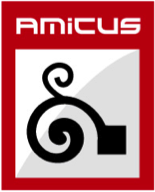The Second Workshop on Annotation of Corpora for Research in the Humanities
ACRH-2 has taken place in Lisbon, Portugal on November 29 2012, and was hosted by CLUL at the university of Lisbon.
The proceedings of the workshop are available and can be downloaded:
Proceedings ARCH-2
The workshop aims at building a tighter collaboration between people working in various areas of the Humanities (such as literature, philology, history etc.) and the research community involved in developing, using and making annotated corpora accessible.
Addressing topics related to annotated corpora for research in the Humanities is an interdisciplinary task, which involves corpus and computational linguists (mostly those working in literary computing), philologists, scholars in the Humanities and computer scientists. However, this interdisciplinarity is not fully realised yet. Indeed, philologists and scholars are not used to exploit NLP tools and language resources such as annotated corpora; in turn, computational linguists are more prone to develop language resources for NLP purposes only.
For instance, although many corpora that play a relevant role for research in Humanities are today available in digital format (theatrical plays, contemporary novels, critical literature, literary reviews etc.), only a few of them are linguistically tagged, while most still lack linguistic tagging at all. Historical corpora are also a case of special interest, since their creation demands a strong interplay between computational linguistics and more traditional scholarship. Over the past few years a number of historical annotated corpora have been started, among which are treebanks for Middle, Early Modern and Old English, Early New High German, Medieval Portuguese, Ugaritic, Latin, Ancient Greek and several translations of the New Testament into Indo-European languages. The experience of these ever-growing group of projects can provide many suggestions on the methodology as well as on the practice of interaction between literary studies, philology and corpus linguistics.
Moreover, we believe that a tighter collaboration between people working in the Humanities and the research community involved in developing annotated corpora is needed since, while annotating a corpus from scratch still remains a labor-intensive and time-consuming task, today this is simplified by intensively exploiting prior experience in the field. The previous edition of ACRH took place in on 5 Jan 2012, Heidelberg, Germany (website).
Important dates
- Conference: November 29, 2012
- Deadline for Paper submission: September 2, 2012
- Notification of acceptance: October 7, 2012
- Camera-ready paper submission: October 28, 2012
- Conference Registration deadline: October 31, 2012
Venue
The ACRH-2 workshop takes place in Lisbon, Portugal. The workshop is co-located with TLT-11 (11th International Workshop on Treebanks and Linguistic Theories). You can find more information about the conference location and how to travel to Lisbon here.
Program Committee
David Bamman (USA)
Gabriel Bodard (UK)
Lars Borin (Sweden)
Antonio Branco (Portugal)
Milena Dobreva (Malta)
Anette Frank (Germany)
Dag Haug (Norway)
Erhard Hinrichs (Germany)
Beáta Megyesi (Sweden)
Petya Osenova (Bulgaria)
Martin Reynaert (the Netherlands)
Victoria Rosén (Norway)
Jeff Rydberg Cox (USA)
Melissa Terras (UK)
Manfred Thaller (Germany)
Martin Volk (Switzerland)
Paper Submission
More information on how to submit a paper can be found here.
Registration
To register for the conference, please fill out the registration form that can be found here.
